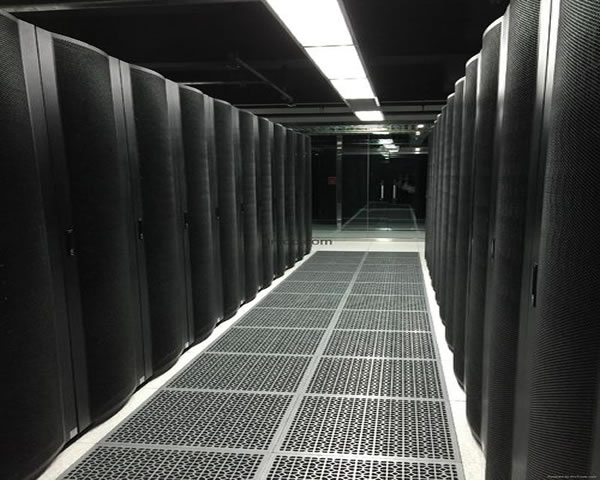1. understand the necessity and advantages of american servers allocating public ip addresses.
2. master the specific processes and steps for allocating public ip addresses to avoid common mistakes.
3. analyze different types of public network ip costs to help you make a reasonable budget.
today, with highly developed information technology, more and more companies choose to deploy servers in the united states to meet the needs of their global business. in particular, the allocation of public ip addresses not only affects the access speed of the website, but is also directly related to the network security of the enterprise. therefore, it is particularly important to understand the process and cost of allocating public ip addresses to servers in the united states .
public ip refers to the address that uniquely identifies a device on the internet. the opposite is private ip , which can only be used within the local area network. servers with public network ip can communicate directly with external networks, which greatly facilitates data exchange and access.

although the process of allocating a public ip seems complicated, it can actually be simplified into a few key steps:
first, you need to choose a reliable cloud service provider or hosting provider. when choosing, you can consider the following factors: network stability, customer support, cost transparency, and the location of the data center.
choose the appropriate server configuration based on your needs. different configurations will affect the allocation method and cost of public network ip. generally speaking, the higher the configuration, the more public ips will be allocated.
after determining the service provider and server configuration, you need to submit an application for a public ip address to the service provider. when applying, you may need to fill in some relevant information, including purpose of use, expected traffic, etc., to help the service provider evaluate your needs.
the service provider will review your application. after passing the review, you will be assigned a public ip. if the review fails, the service provider will give feedback on the reasons and you can make adjustments based on the feedback.
after obtaining the public ip, you need to configure the server accordingly. this usually includes modifying network settings, configuring firewall rules, etc. to ensure that the server can receive and send data properly.
the cost of public ip varies by service provider and region. here are some common fee structures:
independent public ip is usually the first choice for enterprise users, and the cost is relatively high. generally speaking, the cost of an independent public ip ranges from 5 to 20 us dollars per month, depending on the service provider's pricing strategy.
for small and medium-sized enterprises or users with limited budget, sharing public ip is an economical and affordable option. the cost of sharing a public ip is usually lower, and some can even be as low as a few dollars per month, but it will affect access speed and security.
in addition to the basic public ip fees, you may also need to pay some additional fees, such as data transmission fees, additional security service fees, etc. therefore, when choosing a service provider, be sure to carefully understand its charging standards.
choosing the appropriate public ip can not only improve the access speed of the website, but also enhance security. the following are some points you need to pay attention to when choosing a public ip:
choosing a service provider with high network stability can ensure that your website can still maintain good performance during peak access periods.
with the increase in cyber attacks, it is particularly important to choose a service provider that provides security protection measures. make sure it can provide adequate firewall, ddos protection and other security services.
high-quality technical support can help you solve problems quickly and avoid losses caused by server failure. therefore, when choosing a service provider, try to choose one that provides 24/7 support.
when choosing and applying for a public ip for a us server , it is crucial to understand the process and costs. through the analysis of this article, i believe you will have a deeper understanding of public network ip allocation. when choosing a service provider, be sure to choose a solution that suits you based on your own needs to ensure that your network environment is safe and efficient.
i hope this article can help you go more smoothly on the road to cloud computing and network construction. if you have any other questions about public ip allocation for us servers, please feel free to consult us!
- Latest articles
- Application Scenarios And Practical Effects Of Cn2 Lines In The United States
- Recommended High-defense Server Room In The United States And Analysis Of Its Advantages
- Several Key Factors To Consider When Choosing Cn2 In Singapore
- Market Demand And Trend Report Of Vietnam’s Native Ip
- Where To Buy Cost-effective Servers In Taiwan
- Where Does Taiwan Vps Provide The Best Service And Support?
- Market Trends And Development Analysis Of Japan’s Cn2 Cloud Services
- Detailed Comparative Analysis Of Hong Kong’s Cn2 And Gia Routes, Which One Is More Suitable For You?
- How To Choose An Efficient Japanese Cloud Server Service Provider
- Vps Price Analysis And Selection Suggestions For Japanese Native Ip
- Popular tags
-
How To Choose The Best Solution For Unblocking American High-defense Servers In Seconds
this article discusses how to choose a us high-defense server, and provides the best solution to unblocking in seconds to solve the problems encountered by users when selecting servers. -
Performance Evaluation And Recommendation Of Los Angeles High-defense Server In The United States
this article will provide you with a detailed evaluation of the performance of the los angeles high-defense servers in the united states and recommend trustworthy service providers. -
Advantages And Selection Strategies Of Renting High-defense Servers In The United States
This article explores the advantages and selection strategies of high-defense server rental in the United States, covering server types, configurations, and real cases.


